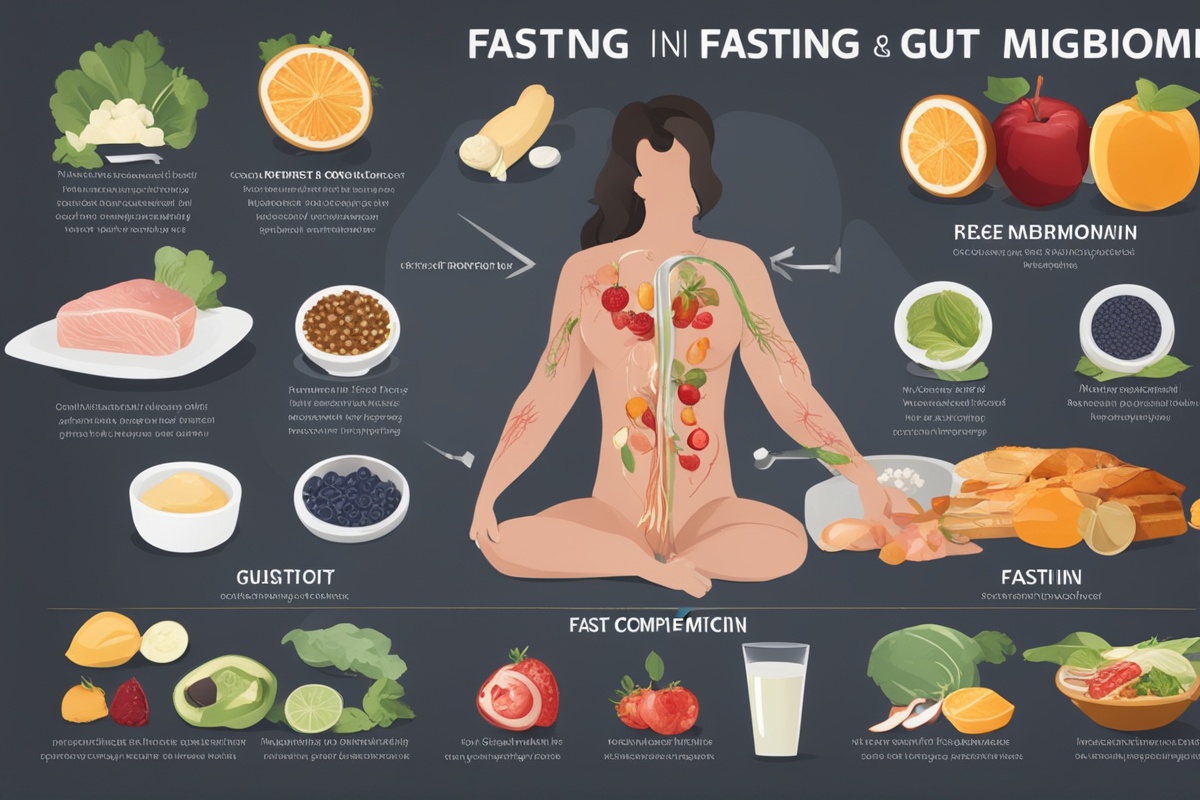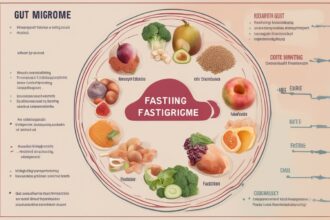Intermittent fasting (IF) has gained significant attention in recent years as a powerful tool for weight loss, improved metabolism, and overall wellness. However, one of the lesser-discussed yet profoundly impactful aspects of this dietary approach is its effect on the gut microbiome. In this post, we’ll dive deep into the intermittent fasting ghealthlth benefits, exploring how this eating pattern can positively influence the trillions of microorganisms in your digestive system and, in turn, your overall health.
What Is Intermittent Fasting?
Intermittent fasting is not a diet in the traditional sense but rather an eating pattern that alternates between periods of eating and fasting. Popular methods include the 16/8 method (fasting for 16 hours and eating during an 8-hour window) and the 5:2 approach (eating normally for five days and significantly reducing calorie intake on two non-consecutive days). While IF is often associated with weight management, its benefits extend far beyond the scale, particularly when it comes to gut health. The intermittent fasting gut health benefits are rooted in how fasting periods allow the digestive system to rest and reset, fostering a healthier microbial environment.
How Intermittent Fasting Affects the Gut Microbiome
The gut microbiome consists of trillions of bacteria, viruses, and fungi that play a critical role in digestion, immunity, and even mental health. Research suggests that intermittent fasting can positively alter the composition of these microorganisms. During fasting periods, the gut is given a break from constant food processing, which can reduce inflammation and promote the growth of beneficial bacteria like Akkermansia muciniphila, known for its role in maintaining gut barrier integrity. This shift in microbial balance is one of the key intermittent fasting gut health benefits, as it supports a more resilient digestive system. For more on the basics of gut bacteria, check out our post on Understanding the Gut Microbiome.
Intermittent Fasting and Gut Inflammation
Chronic inflammation in the gut is linked to conditions like irritable bowel syndrome (IBS), Crohn’s disease, and even systemic issues like obesity and diabetes. Intermittent fasting has been shown to reduce markers of inflammation by decreasing the production of pro-inflammatory cytokines. Fasting also triggers autophagy, a cellular cleanup process that removes damaged cells and reduces stress on the gut lining. By alleviating inflammation, IF can help prevent or manage gut-related disorders, highlighting another of the significant intermittent fasting gut health benefits. If you’re interested in inflammation and diet, read our related article on Anti-Inflammatory Diets for Gut Health.
Improved Nutrient Absorption Through Fasting
A healthy gut microbiome is essential for breaking down food and absorbing nutrients effectively. Intermittent fasting may enhance this process by promoting microbial diversity, which ensures a wider range of enzymes and metabolic pathways are available to process nutrients. Studies indicate that fasting can increase the population of bacteria that produce short-chain fatty acids (SCFAs), such as butyrate, which nourish the gut lining and improve nutrient uptake. This is yet another reason why the intermittent fasting gut health benefits are so compelling. For additional insights into nutrient absorption, explore our piece on Key Nutrients for Gut Health.
Potential Challenges and Considerations
While the benefits of intermittent fasting for gut health are promising, it’s not a one-size-fits-all solution. Some individuals may experience initial discomfort, such as bloating or irritability, as their body adjusts to fasting. Additionally, over-fasting or improper nutrient intake during eating windows can negatively impact the gut microbiome by starving beneficial bacteria of necessary prebiotics. It’s crucial to approach IF mindfully, ensuring a balanced diet rich in fiber, fermented foods, and diverse nutrients during eating periods. Curious about prebiotics? Learn more in our guide to Prebiotics and Gut Health.
Practical Tips for Maximizing Gut Health with Intermittent Fasting
To fully harness the intermittent fasting gut health benefits, consider integrating these practical strategies into your routine. First, start with a gentler fasting schedule, such as 12/12, before progressing to more intensive methods. Second, prioritize gut-friendly foods like yogurt, kefir, and leafy greens during eating windows to support microbial diversity. Third, stay hydrated, as dehydration can disrupt gut function. Lastly, listen to your body— if fasting feels unsustainable or causes persistent discomfort, consult a healthcare professional. For more tips on balancing fasting with nutrition, see our post on Balancing Nutrition During Fasting.
Disclaimer: This content is for informational purposes only and not a substitute for professional medical advice. Always consult with a qualified healthcare provider before starting any new dietary or fasting regimen, especially if you have pre-existing health conditions or concerns about your gut health.




